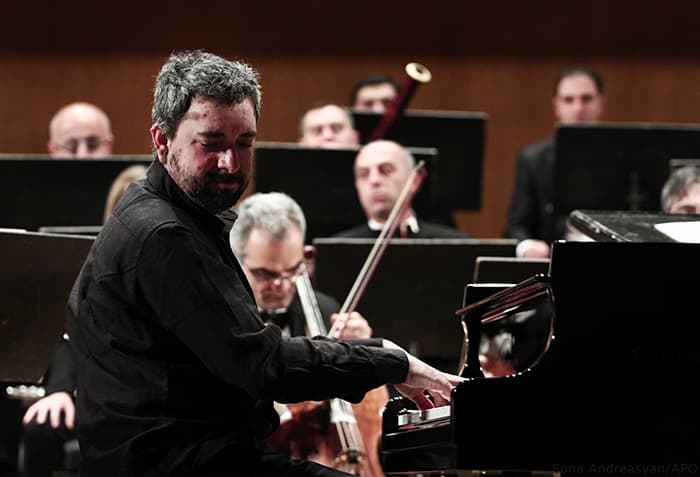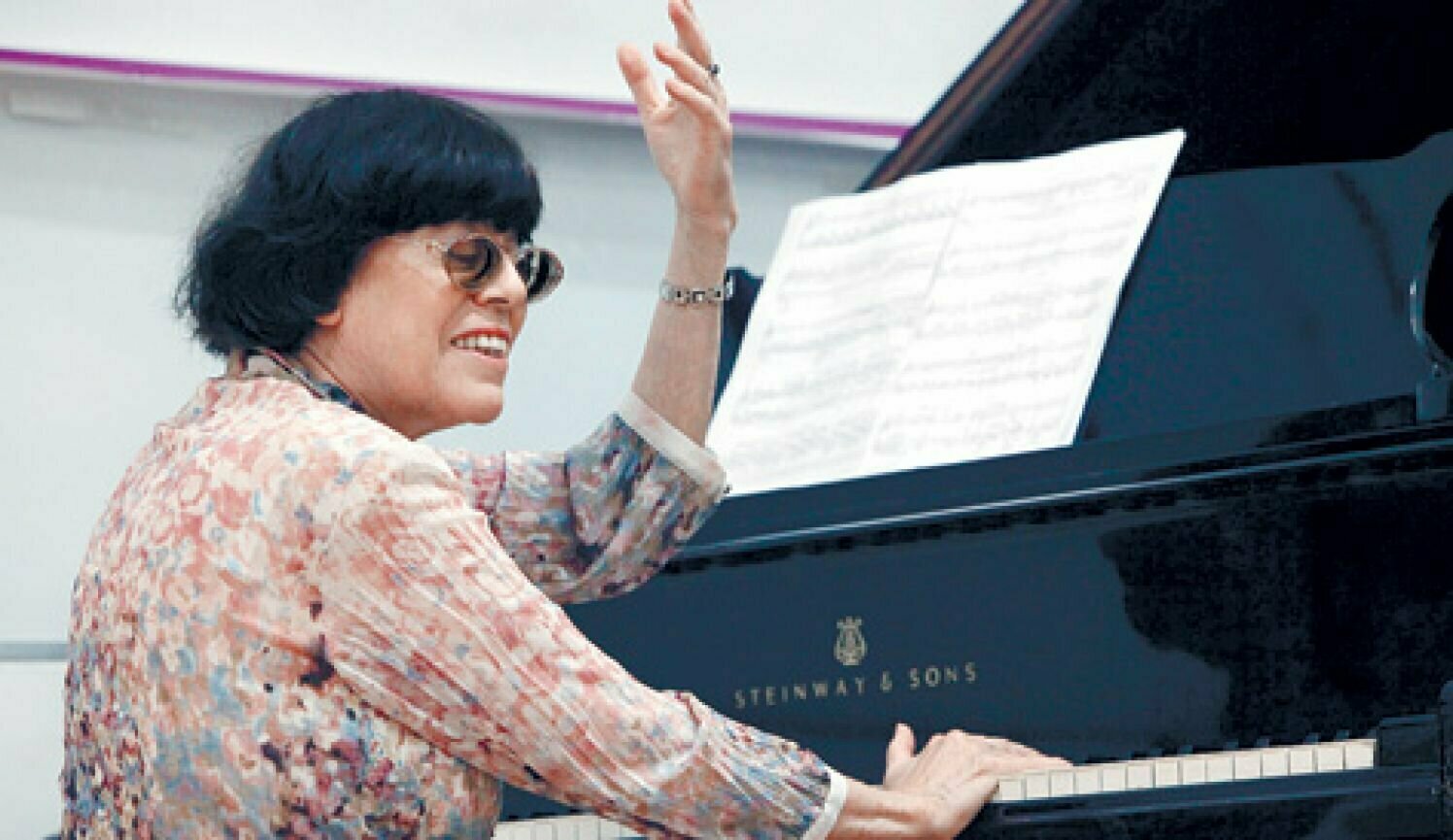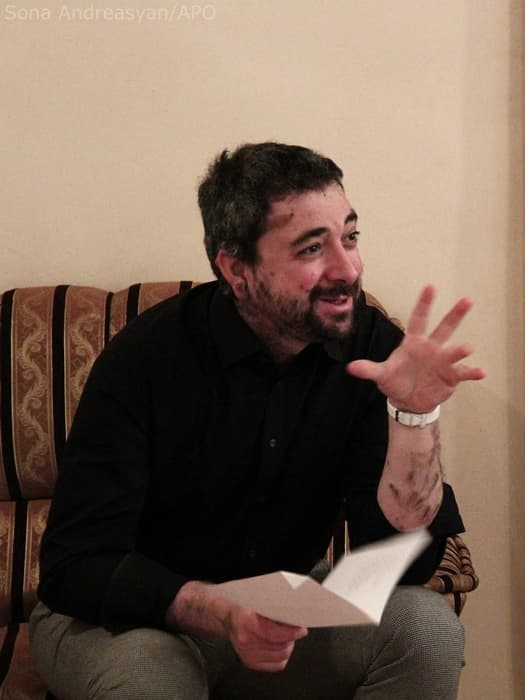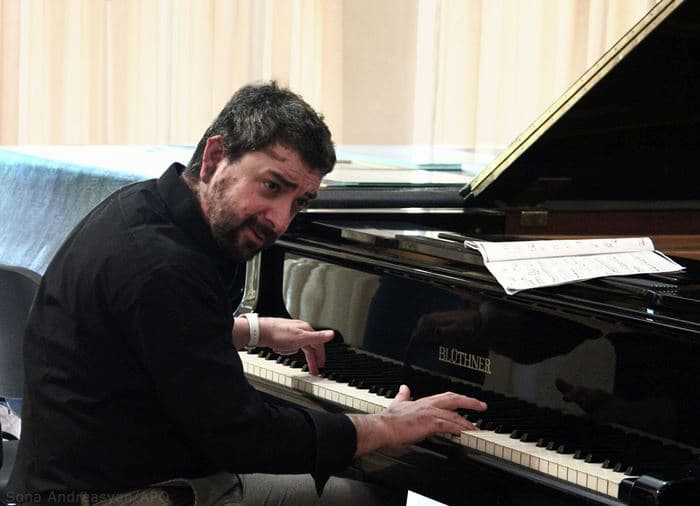Konstantin Lifschitz stunned the international music scene with his recording of Bach’s Goldberg Variations in 1994. The recording received a Grammy nomination and was celebrated as the most convincing Bach interpretation since Glenn Gould. Critics praised his “joy and energy that creates a purposefulness that conveys his complete immersion in this work as a wholly cohesive sequence of interlinked ideas.” Mind you, Lifschitz was only 17 years of age.
J.S. Bach: Goldberg Variations, BWV 988 (Konstantin Lifschitz, piano)
From Kharkov to Moscow

Konstantin Lifschitz
Konstantin Lifschitz was born on 10 December 1976 in the Ukrainian city of Kharkov. From his earliest memories, the piano exerted an irresistible attraction on the young child. His special aptitude for the piano was quickly discovered, and at the age of five, he enrolled in the famed Gnessin Special Middle School of Music in Moscow. Unsurprisingly, he was assigned the equally famous Tatiana Zelikman as a teacher.
Zelikman came from the long line of German/Russian pianism taught by Heinrich Neuhaus. Her studies with the distinguished Neuhaus student Theodor Gutman, turned her into an amazing musician and pedagogue. She was very demanding and highly critical as a teacher, and instilled in her students a relentless work ethic requiring a continuous striving towards progress.
Konstantin Lifschitz Performs Brahms’ Variations on a Theme by Robert Schumann, Op. 9
Landmark Recitals

Tatiana Zelikman
Lifschitz’s progress was unmistakable as he presented a landmark recital in the Chamber Hall of the Russian Academy of Music at the age of 13. Playing before an enthusiastic audience, critics immediately placed him alongside the legends of Russian piano masters. For Lifschitz, being part of a “Russian School” would “be too narrow a definition, as a wide variety of pianists are subsumed under this term without any similarities being identified.”
As he explained in an interview, “I don’t belong to any of the so-called schools, but get some of my inspiration and suggestions from the music itself. There are also the other arts that have a lot to say to you. To get to the point: I try to discover and conquer my own world through parallel universes.”
Gottfried von Einem: Piano Concerto, Op. 20 (Konstantin Lifschitz, piano; ORF Vienna Radio Symphony Orhcestra; Cornelius Meister, cond.)
Back to Bach

Lifschitz was awarded a scholarship from the Russian Culture Foundation to play recitals in prominent musical centres around Europe. Drawing the attention of Vladimir Spivakov, Lifschitz performed as a soloist with the Moscow Virtuosi, and also went on tour to Japan and subsequently Monte Carlo and Antibes. He presented his graduation recital in 1994, and his program opened with the Goldberg Variations.
In an interview with Martin Hoffmeister, Lifschitz explained that “Bach’s music is an axiom, something irrefutable. I can’t do without this music, music that always motivates me to keep going, even when I have doubts about what I’m doing. In this sense, Bach’s music nourished me, so to speak, it confirmed me and at the same time encouraged me to persevere.”
Ludwig van Beethoven: Piano Sonata No. 26 in E-Flat Major, Op. 81a, “Les adieux” (Konstantin Lifschitz, piano)
Future of Classical Music

For Lifschitz, “Bach’s music endures and survives many things that would have destroyed works by Mozart or Beethoven, for example. Bach allows a lot, especially when it comes to tempi. On the other hand, it makes the music mysterious and awakens the joy of experimentation. Articulation, dynamics, character: Bach allows for an enormous range of interpretations, which pianists, of course, also use. That’s what makes it exciting.”
Lifschitz is always looking to maximise the potential for tone colour and tonal variety, and he has a seemingly gentle and unshowy authority in terms of stage manner. His approach to the repertoire, which includes a strong focus on contemporary composers, is to look at music as a living entity and not just a historical monument. And he is undecided as to the future of classical music. “Sadly,” he explains, “classical music is often presented as a ‘problem’ today. But the real problem is not classical music, it’s people.”
For more of the best in classical music, sign up for our E-Newsletter
